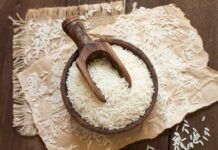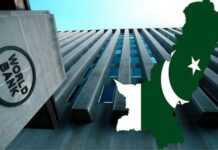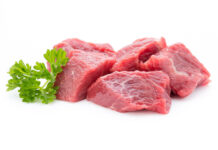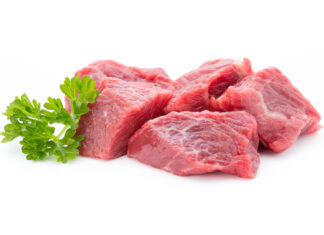ISLAMABAD: Formal and informal channels of trade between Iran and Pakistan remained unaffected by the recent escalation in military tension between the two states as of Thursday.
In the latest flare-up, military strikes were exchanged between the two neighboring nations, resulting in civilian casualties and heightened diplomatic tensions.
These incidents prompted a diplomatic rift, with Pakistan recalling its ambassador from Iran and suspending high-level visits. In response to Pakistan’s strikes, Iran demanded an immediate explanation from its neighbor.
Despite this, bilateral trade appears unaffected, continuing its usual course. Ministry of Commerce officials stated that there is no immediate impact on trade activities, primarily the informal sector.
“There are no formal measures so far. Whether there is any impact of the situation on trade is still to be seen,” said Saleh Frooqi, Secretary Ministry of Commerce.
Considering the limited formal trade with Iran, another official expressed the belief that the recent developments might not significantly impact formal trade.
Who would lose out if informal trade is stopped?
Interestingly enough, since the bilateral official trade is largely in favor of Iran, the neighboring country may face bigger consequences in case of a shut down of trade.
Haji Abdullah, President Quetta Chamber of Commerce and Industry, told Profit that a delegation of the chamber was at Chahbahar in Iran for a meeting with a team of Zahidan Chamber of Commerce at the time when Iran conducted the air strike. “When we heard about the attack we cancelled the meeting in protest and returned to Pakistan.”
“Iran would lose the most as it exports things worth $ 2 billion to Pakistan whereas Pakistan exports goods worth only $ 500 million to the neighboring country. The trade volume included both the formal and informal trade between Pakistan and Iran,” Haji Abdullah added.
“However, at the movement border is open for trade and movement of tracks on both sides of the border is as usual. We hope that the trade activities would remain unharmed as it involves wellbeing of people in both neighboring countries.”
Waheed Ahmed, a leading fruit and vegetable exporter, said that trade activities across the border were unharmed so far. He hoped that the existing tension would not be further escalated saying that the trade activities would continue as the neighboring countries are interdependent.
Formal Trade between Pakistan and Iran
As per available data, Pakistan’s formal exports to Iran in last financial year (2022-2023) was registered only $ 0.097 million against the import of $ 881 million from Iran which shows how negligible things Pakistan export to Iran compared to its exports.
In 2021-22, Pakistan’s share in total bilateral formal trade of $774 million was merely $ 0.00002 million. Similarly in the financial year 2020-21 Pakistan exported goods of only wroth $ 0.007 million against the import worth $519 million. In 2019-20 Pakistan’s exports were only $ 0.018 million as compared to the imports of $ 438 million. According to the data, during the past five years, only 2018-19 was the year in which Pakistan exported things worth $ 12.33 million against imports worth $416 million from Iran.
According to officials at MOC, the unofficial exports of Pakistan to Iran are usually higher than formal trade as exporters usually show other countries like Dubai instead of Iran to avoid any difficulties related to financial transactions for the imposition of bans on Iranian banks.
Oil smuggling
Though it is anticipated that Iran would be the major loser in case border closes for trade with Pakistan, but the case related to smuggling of oil, which is the major contributor in informal bilateral trade, may show different story as 40 to 50 percent of the oil (petrol and diesel) consumed in Pakistan is coming from Iran as claimed by oil marketing companies.
In case of any disruption in the smuggled oil, Pakistan may also lose a major supply forcing it to spend more dollar on import of the oil in the formal channel. According to industry sources, Pakistan may not afford losing the existing oil supply (smuggled one) keeping in view the dollar constraints and depleting foreign exchange reserves.
While it not been declared either by the petroleum division or the Oil Companies Advisory Committee (OCAC) but there was a general consensus among all players in the industry that between 40- 50 percent of petrol and diesel was being smuggled in the country from Iran.
“The average monthly consumption of both the key fuels in country was around 800,000 tonnes,” said a senior executive of an oil marketing company (OMC).
“Various sources have confirmed that around 10,000 tonne HSD was being smuggled into Pakistan on daily basis, while the demand for Iranian petrol was less due to slightly lower quality of petrol produced in Iran,” the executive added.
The consumption of HSD varies in the country based on the frequency of the transport sector which is high during the holidays in education sector, and the other key consumption era for diesel was wheat harvesting time.
Diesel was also consumed in heavy generators and it increases during the electricity load shedding days.
Industry sources said that the smuggled Iranian petrol was used in bikes, small loading vehicles and old cars in the whole southern region from D.I Khan, South Punjab, most of Sindh up to mane areas of Karachi.
Whereas the diesel was consumed at a larger area in the country, as the truckers have a nationwide movement
Impact on Border Communities
Despite the tensions, the tradition of bartering goods between Baloch communities on both sides of the border remains intact. Pakistan exports rice and other products to Iran, while Balochistan’s border residents continue to save money by purchasing Iranian goods. Balochistan, being Pakistan’s least-developed province, heavily relies on Iran for essential commodities.
The informal trade, rooted in decades-old traditions, involves exchanging rice for cement, steel, fruits, dry milk, cooking oil, and various other commodities. The affordability of Pakistani commodities is a significant concern for Balochistan’s residents, particularly those in border areas.
As the situation unfolds, the impact on formal and informal trade between Pakistan and Iran remains uncertain. The ongoing interdependence of both nations in various economic aspects raises questions about the sustainability of any trade closures and their potential consequences on both sides of the border.























